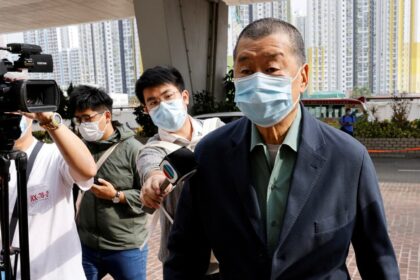Viral video triggers Thai probe and revives fears of forced shopping
A video of a Chinese speaking tour guide in Thailand threatening to strand passengers if they refused to buy from a designated store has set off a government investigation and a sharp reaction from the travel industry. The clip, filmed by a tourist and shared on a Thai tourism Facebook page, shows the guide directing a busload of Chinese travelers to a tax free shop, then warning that anyone who did not make a purchase would not be allowed back on the bus. The exchange, which spread quickly online, reignited concerns about hard sell tactics on budget tours and the enduring shadow of zero dollar tours that once plagued Thailand’s inbound market.
- Viral video triggers Thai probe and revives fears of forced shopping
- What the video shows
- How officials are responding
- Is this a zero dollar tour case?
- What Thai law requires from guides and tour companies
- Why coercive shopping persists on some tours
- What travelers can do if pressured
- Wider context, visitor confidence and peak season
- What happens next
- Key Points
Tourism and Sports Minister Atthakorn Sirilathayakorn said officials were treating the case as urgent. The Department of Tourism is working with the Tourist Police Bureau to verify basic facts such as when and where the recording was made and to identify the operator. Authorities said that if the guide was unlicensed or if coercion is proven, both the individual and the tour company could face penalties under the Tourism Business and Tour Guide Act. The episode unfolds as Thailand enters peak travel months, when officials and legitimate operators are keen to protect visitor confidence and the country’s reputation as a welcoming destination.
What the video shows
The clip, filmed on a bus, captures a Chinese speaking guide addressing a group in Mandarin about an upcoming stop at a tax free store. According to translations shared alongside the video, the guide pressed passengers to buy and suggested that those who did not comply would face consequences. Registered Thai guides and tourism groups condemned the behavior and urged authorities to check whether the person was properly licensed, a frequent point of concern when foreign language groups are handled by unlicensed or foreign guides.
The guide’s own words, heard clearly in the clip, are at the center of the uproar.
The guide told passengers: “We will stop at a tax free shop. Anyone who does not buy something will not be allowed back on the bus.”
When some travelers objected, the guide escalated, warning that those who did not cooperate might face difficulties returning to China. That allegation heightened alarm in the comments and among industry professionals who said the message went far beyond acceptable sales talk.
The guide was heard warning: “If you do not buy, you might not be able to return to China.”
How officials are responding
Minister Atthakorn instructed the Department of Tourism to work with the Tourist Police to verify the place and time of the incident and the company behind the tour. Investigators are also reviewing whether the behavior breached Thai law on coercing customers and whether a foreigner acted as a guide, which is illegal. Officials confirmed they have identified the Thai and Chinese companies connected to the group and are assessing their roles.
Under the Tourism Business and Tour Guide Act, an unlicensed guide can face up to one year in prison and, or a fine of up to 100,000 baht. A licensed tour operator found complicit can face a fine of up to 50,000 baht and an administrative penalty that can include a license suspension of up to six months. The Department of Tourism said it has stepped up enforcement after the pandemic, including empowering provincial tourism offices to take action against suspected violators and to coordinate with police on arrests when required.
Is this a zero dollar tour case?
The video revived public memory of zero dollar tours, a business model that boomed before 2017. In that model, overseas agents sold ultra cheap packages that looked like bargains. Operators then herded groups to designated shops, gem stores, herbal centers or duty free outlets and recouped money through markups and kickbacks. Guides were often paid little and depended on commissions, which created pressure to push shopping stops and, in some cases, to intimidate guests. Thai authorities cracked down on these schemes years ago, seizing assets and tightening oversight of operators and nominee companies used by foreign controllers.
The Department of Tourism now says travel patterns have changed after the pandemic. Many Chinese visitors opt for premium experiences or independent travel, which reduces the space for the old mass market model. Even so, officials remain watchful and said they are checking whether the current case fits the definition of a zero dollar tour. Regardless of how the tour is labeled, threats against customers violate the standards Thailand expects of its licensed guides and operators.
The mechanics of forced shopping are straightforward. The tour advertises a low sticker price and claims limited free time. The group is taken to several designated stores where prices are much higher than street rates. The operator receives a commission on sales, sometimes tiered by volume or category. If the group does not spend enough, the guide faces pressure from supervisors or the shop. This incentive structure can encourage unacceptable behavior. It does not represent the many legitimate tours that operate with clear itineraries and optional shopping without pressure.
What Thai law requires from guides and tour companies
Thailand polices its guiding profession through a licensing system managed by the Department of Tourism. Guides must hold valid licenses and are identified by a card that displays their name, license class and languages. Work as a guide in Thailand is restricted. Foreign nationals are not allowed to work as tour guides inside the country. Tour operators must also be licensed, maintain proper contracts with foreign partners, and follow consumer protection rules that prohibit coercive sales.
Violations carry criminal and administrative penalties. An individual acting as a guide without a license faces up to one year in prison and, or a fine up to 100,000 baht. A licensed tour operator can be fined up to 50,000 baht and have its license suspended for up to six months if it allows illegal guiding or coercive practices on its tours. The Department of Tourism has said provincial tourism offices can initiate enforcement against suspected violators and coordinate with police for arrests. Authorities have also warned against the use of nominee structures, where foreigners hide behind Thai companies or individuals to control tour businesses, a practice that can trigger additional legal consequences under company and labor laws.
Why coercive shopping persists on some tours
Even with tighter rules, the pressure to sell can crop up where the economics of a tour do not add up. Ultra low packages often rely on commissions and rebates from designated shops. When a shop expects revenue and the bus does not deliver, the guide becomes the point of pressure. Some operators also set internal sales quotas, which can push guides to use fear and misinformation to drive purchases.
Kickback driven retail stops are a long standing feature in mass market tourism across the region, not only in Thailand. The practice becomes harmful when travelers are misled about prices or quality, or when freedom to skip a shop is removed. Thailand’s mainstream operators stress that shopping should be optional, transparent and free of intimidation. The current investigation is an attempt to reinforce that message during peak season.
What travelers can do if pressured
Most tours in Thailand proceed without incident. Still, visitors can take simple steps to protect themselves and to help authorities act against bad actors if problems arise.
- Ask to see the guide’s license card at the start of a tour. Legitimate guides carry an official card from the Department of Tourism.
- Keep a copy of your itinerary and any written terms. If shopping stops are not listed as mandatory, you have the right to skip them.
- Do not hand over your passport to anyone outside of a hotel, bank or official checkpoint. A guide or shop has no right to withhold it.
- If you feel unsafe or coerced, contact the Tourist Police at 1155 for assistance. In an emergency, dial 191. Use your hotel or a public place to make the call if you prefer.
- Record details, such as the bus plate number, guide name, company name, time and location. Photos of posted licenses or storefronts can help investigators.
- Keep receipts and ask for an invoice that lists the item, price, tax and seller contact. This documentation is useful for refunds or complaints.
- If you paid by card and suspect overcharging, speak to your bank promptly about dispute options.
Wider context, visitor confidence and peak season
Chinese travelers are returning to Thailand in growing numbers, although arrivals have yet to match 2019. Competition among operators is intense during high season, when demand, staffing and quality control are all under pressure. Local guides and hoteliers say that incidents like the one in the video damage trust far beyond a single bus. They also note that enforcement can work, especially when visitors report facts quickly and when companies know penalties are credible.
Coercion is not confined to shopping disputes. Earlier this year, Bangkok police arrested members of a joint Thai Chinese extortion ring that targeted Chinese nationals, including a suspect accused of impersonating police during abductions and forcing victims to transfer cryptocurrency. That case, while very different from tour shopping, underlines a general risk: visitors can be vulnerable to pressure tactics that exploit language gaps and unfamiliar rules. Thai authorities say they are working with partners and consulates to address such threats and to show that abuses carry consequences.
What happens next
The Department of Tourism has said it knows the Thai and Chinese companies linked to the tour in the video and is verifying the chain of responsibility. If investigators confirm illegal guiding or coercion, the guide faces criminal charges and the operator could be fined and suspended. Regulators have flagged continued checks on nominee structures and coordination with the Tourist Police to pursue cases when companies dodge accountability.
Officials also say they will use the outcome to remind the market that shopping on tour must be optional, pricing must be transparent and guides must treat guests with respect. Legitimate operators have joined that call. They want a clear signal that Thailand will not tolerate those who threaten or mislead visitors, especially during peak season when service standards set the tone for the months ahead.
Key Points
- Video shows a Chinese speaking tour guide in Thailand threatening to bar non buyers from reboarding a bus and warning about problems returning to China.
- The Tourism and Sports Ministry ordered an urgent investigation with the Department of Tourism and Tourist Police verifying details and identifying the operator.
- Authorities say an unlicensed guide could face up to one year in prison and, or a fine of 100,000 baht, while a tour company can be fined up to 50,000 baht and have its license suspended.
- Officials are checking whether the case fits the pattern of zero dollar tours, which rely on forced shopping and shop commissions to subsidize cheap packages.
- The Department of Tourism says enforcement has tightened after the pandemic, including action against nominee companies and stronger provincial level authority.
- Travelers who feel coerced can call the Tourist Police at 1155, record details and keep receipts to support complaints.
- Industry groups say most tours are lawful and want strong penalties for coercion to protect visitor confidence during high season.
- Authorities have also pursued unrelated cases involving coercion against visitors, underscoring a broader focus on traveler safety.












